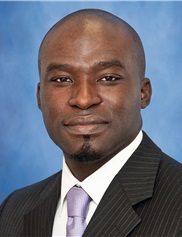Grants Funded
ASPS/PSF leadership is committed to continuing to provide high levels of investigator-initiated research support to ensure that plastic surgeons have the needed research resources to be pioneers and innovators in advancing the practice of medicine.
Research Abstracts
Search The PSF database to have easy access to full-text grant abstracts from past PSF-funded research projects 2003 to present. All abstracts are the work of the Principal Investigators and were retrieved from their PSF grant applications. Several different filters may be applied to locate abstracts specific to a particular focus area or PSF funding mechanism.
The sub-Saharan Africa Breast Reconstruction (SABR) Study
Adeyiza Momoh MD
2024
The Regents of the University of Michigan
National Endowment for Plastic Surgery Grant
Breast (Cosmetic/Reconstructive), General Reconstructive
Project Summary: Breast cancer is the second leading cause of cancer-related mortality amongst women in sub-Saharan Africa (SSA). The high mortality rates are partly attributed to a preponderance of advanced disease at the time of diagnosis because of delayed presentation. One of the primary reasons for delayed presentation amongst African women is the fear of mastectomy related to postoperative deformity, diminished sexuality and femininity. As mastectomy is the only possible surgical treatment for many women with breast cancer in SSA, decisions made to avoid it places women's lives at risk. Post-mastectomy breast reconstruction for African women presenting with breast cancer may encourage earlier treatment interventions by offering quality of life benefits that increase women's willingness to seek care. Within West Africa, a lack of patient knowledge about breast reconstruction—leading to fear and unfounded concerns—has been identified as a prominent barrier to access. In this study we propose to evaluate the role that limited knowledge about breast reconstruction plays on fears of mastectomy and breast related quality of life experiences among SSA women seeking breast cancer treatment. Gaining insight into the state of patient knowledge about breast reconstruction and patient perceived barriers to the delivery of reconstructive care is necessary to inform providers and policy makers about the benefits of these procedures and in time to develop and implement strategies for comprehensive breast cancer care in SSA. We will perform a mixed-methods study focused on women in Ghana and Ethiopia by qualitatively and quantitatively assessing fears of mastectomy, patient knowledge, perspectives on breast reconstruction and barriers to breast reconstruction. At each study site, we will interview 30 women who have a diagnosis or history of breast cancer to understand the specific cultural and social structures that shape women's experiences with a breast cancer diagnosis and expectations about mastectomy and reconstruction. Next, we will administer surveys informed by our qualitative studies to a sample of 120 women who have a diagnosis or history of breast cancer. We hypothesize that women will demonstrate limited knowledge about breast reconstruction and identify common experiences with the diagnosis of breast cancer and subsequent care that influence their fears about mastectomy. Moreover, we hypothesize that low quality of communication from providers about reconstruction.
Impact Statment: It is projected that 416,000 women in Africa will die from breast cancer in this decade and that a third of these deaths can be averted through down staging of disease and improving treatment. Comprehensive treatment includes opportunities for breast reconstruction given the potential impact on decision making and quality of life in breast cancer survivors. This study will fulfill a critical need by defining the value of breast reconstruction in two populations of African women, while also identifying key barriers to reconstructive care that may be addressed through targeted interventions in a region where reconstruction is limited. This study will lay the groundwork for future strategies aimed at improving knowledge, access to and the delivery of breast reconstruction to women in SSA.
 Dr. Momoh received his medical education from the Northwestern University Feinberg School of Medicine in Chicago. He then completed a combined General Surgery and Plastic Surgery residency training at the Baylor College of Medicine in Houston. In pursuit of his interests in Microsurgery and breast reconstruction he went on to a microsurgery fellowship at the Harvard Medical School, Beth Israel Deaconess Medical Center in Boston. He is the James W. Crudup Research Professor and Professor of Surgery in the Section of Plastic Surgery at the University of Michigan
While maintaining a robust clinical practice, Dr. Momoh devotes time to health services and clinical research focused on improving the delivery of care and surgical outcomes in breast reconstruction. He is also actively engaged in global surgical research related to breast reconstruction in populations of women in sub-Saharan Africa.
Dr. Momoh received his medical education from the Northwestern University Feinberg School of Medicine in Chicago. He then completed a combined General Surgery and Plastic Surgery residency training at the Baylor College of Medicine in Houston. In pursuit of his interests in Microsurgery and breast reconstruction he went on to a microsurgery fellowship at the Harvard Medical School, Beth Israel Deaconess Medical Center in Boston. He is the James W. Crudup Research Professor and Professor of Surgery in the Section of Plastic Surgery at the University of Michigan
While maintaining a robust clinical practice, Dr. Momoh devotes time to health services and clinical research focused on improving the delivery of care and surgical outcomes in breast reconstruction. He is also actively engaged in global surgical research related to breast reconstruction in populations of women in sub-Saharan Africa.